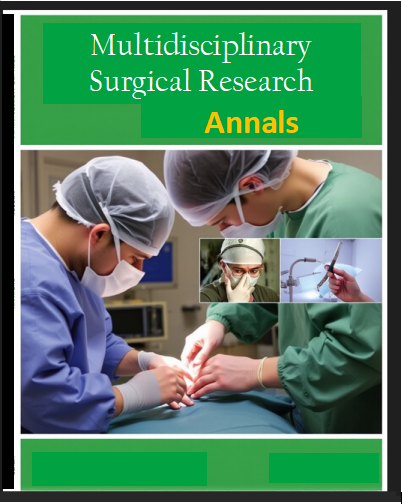Influence of Symbiotic, Prebiotic and Probiotic Supplementation on Hormonal and Biochemical Profile in Rabbits
Keywords:
Symbiotics, prebiotics, probiotics, hormonal profiles, biochemical parameters, reproductive performance, rabbit health.Abstract
Rabbits need a healthy digestive system and strong immunity for good growth and wellbeing. Probiotics are helpful microbes, prebiotics feed these microbes, and symbiotics combine both. Improving gut health through these supplements may also improve blood features such as cell counts and hemoglobin levels, which is why researchers are exploring their effects on rabbits’ blood parameters. Objective: The study aimed to assess the impact of these supplements on reproductive performance, liver function, electrolyte balance, and metabolic health throughout gestation, lactation, and dry periods for three parities. Methodology: Control group (A), a prebiotic-treated group (B), a probiotic-supplemented group (C), and a synbiotic-supplemented group (D) consisting of four groups of 48 rabbits each were chosen. Liver enzymes (ALT, ALP, AST), Biochemical parameters (bicarbonate, creatinine, phosphorus, sodium, calcium, potassium), Reproductive hormone (Progesterone) indices were some of the significant hematological parameters that were measured in order to know the effect of the dietary treatments. Results: Based on the results, significant difference (p < 0.05) was observed; with symbiotic supplementation (Group D) consistently showed the highest values in liver enzymes, with ALT(76.60±4.25IU/L), ALP (66.00±4.37 IU/L in first parity dry period), AST (103.40±3.56 IU/L), Biochemical parameters, with bicarbonate (28.70±2.54 mmol/L in 2nd parity dry period), creatinine (0.35±0.09 mg/dL), phosphorus (6.89±1.27 mg/dl), sodium (153.40±5.27 mmol/L), calcium(13.50±1.12 mg/dL), potassium (6.19±1.19 mmol/L in 2nd parity dry period), and progesterone (42.20±1.26 ng/ml) in the 3rd parity dry period values respectively, and then probiotics (Group C), Prebiotics (Group B) and the control (Group A). The synergistic effect of symbiotics enhanced immunological activity, intestinal health, and nutritional absorption, which consequently enhanced the ability of the rabbits to transport oxygen, their immune function, and overall physiological well-being. These findings suggest that the symbiotic interaction of prebiotics and probiotics represents a powerful dietary method of enhancing hematological profiles and overall well-being. Conclusion: These findings suggest that synbiotic supplementation positively influences hormonal profiles, liver health, and metabolic processes in rabbits. The study highlights the potential of synbiotics as a dietary intervention to enhance reproductive efficiency, physiological health, and overall productivity in rabbits.




